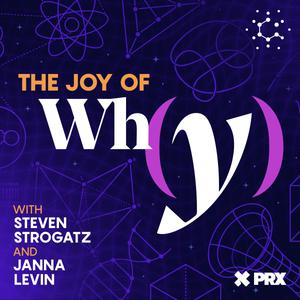
The Joy of Why
Quanta Magazine
The Joy of Why
- 34 minutes 42 secondsWhat Does Milk Do for Babies?
Milk is more than just a food for babies. Breast milk has evolved to deliver thousands of diverse molecules including growth factors, hormones and antibodies, as well as microbes.
Elizabeth Johnson, a molecular nutritionist at Cornell University, studies the effects of infants’ diet on the gut microbiome. These studies could hold clues to hard questions in public health for children and adults alike. In this episode of “The Joy of Why” podcast, co-host Steven Strogatz interviews Johnson about the microbial components that make breast milk one of the most wondrous biofluids found in nature.
You can read the transcript for this episode and see the image of the micrograph Johnson references on our website.
25 April 2024, 10:00 am - 29 minutes 20 secondsCan Information Escape a Black Hole?
Nothing escapes a black hole… or does it? In the 1970s, Stephen Hawking described a subtle process by which black holes can “evaporate,” with some particles evading gravitational oblivion. This phenomenon, now dubbed “Hawking radiation,” seems inherently at odds with general relativity, but it gets weirder still: If particles can escape, do they preserve some information about the matter that was obliterated? Leonard Susskind, a physicist at Stanford University, found himself at odds with Hawking when it came to answering this question. In this episode, co-host Janna Levin speaks with Susskind about the “black hole war” that ensued and the powerful scientific lessons that have radiated from one of the most famous paradoxes in physics.
11 April 2024, 10:00 am - 39 minutes 45 secondsHow Is Flocking Like Computing?
Birds flock. Locusts swarm. Fish school. In these chaotic assemblies, order somehow emerges. Collective behaviors differ in their details from one species to another, but they largely adhere to principles of collective motion that physicists have worked out over centuries. Now, using technologies that only recently became available, researchers have been able to study these patterns of collective animal behavior more closely than ever before. These new insights are unlocking some of the secret fitness advantages of living as part of a group rather than as an individual. The improved understanding of swarming pests such as locusts could also help to protect global food security.
In this episode, co-host Steven Strogatz interviews the evolutionary ecologist Iain Couzin about how and why animals exhibit collective behaviors, and the secret advantages that arise from them.
28 March 2024, 10:00 am - 30 minutes 5 secondsWhat Is Quantum Teleportation?
Quantum teleportation isn’t just science fiction; it’s entirely real and happening in laboratories today. But teleporting quantum particles and information is a far cry from beaming people through space. In some ways, it’s even more astonishing. John Preskill, a theoretical physicist at the California Institute of Technology, is one of the leading theoreticians of quantum computing and information. In this episode, co-host Janna Levin interviews him about entanglement, teleporting bits from coast to coast, and the revolutionary promise of quantum technology.
14 March 2024, 10:00 am - 30 minutes 46 secondsWhat Is the Nature of Time?
Time seems linear to us: We remember the past, experience the present and predict the future, moving consecutively from one moment to the next. But why is it that way, and could time ultimately be a kind of illusion? In this episode, the Nobel Prize-winning physicist Frank Wilczek speaks with host Steven Strogatz about the many “arrows” of time and why most of them seem irreversible, the essence of what a clock is, how Einstein changed our definition of time, and the unexpected connection between time and our notions of what dark matter might be.
29 February 2024, 11:00 am - 34 minutes 22 secondsHow Did Altruism Evolve?
We often talk about evolution as the survival of the fittest. But if it is, then where did the widespread (and widely admired) impulse to help others even at great cost to ourselves come from? In this episode, host Janna Levin speaks with Stephanie Preston, a professor of psychology and head of the Ecological Neuroscience Lab at the University of Michigan, about the evolutionary, neurological and behavioral foundations for altruism.
15 February 2024, 11:00 am - 35 minutes 41 secondsWhat Makes for ‘Good’ Math?
We tend to think of mathematics as purely logical, but the teaching of math, its usefulness and its workings are packed with nuance. So what is “good” mathematics? In 2007, the mathematician Terence Tao wrote an essay for the “Bulletin of the American Mathematical Society” that sought to answer this question. Today, as the recipient of a Fields Medal, a Breakthrough Prize in Mathematics and a MacArthur Fellowship, Tao is among the most prolific mathematicians alive. In this episode, he joins Steven Strogatz to revisit the makings of good mathematics.
1 February 2024, 11:00 am - 2 minutes 10 secondsTrailer: The Joy of Why Season 3
Tune in to the new season of ‘The Joy of Why,’ a podcast from Quanta Magazine and PRX. This season, new co-host cosmologist Janna Levin and mathematician Steven Strogatz will be joined by guests including Terence Tao, the mathematician and Fields Medalist, and Frank Wilczek, the Nobel Prize-winning physicist. New episodes premiere every other Thursday.
25 January 2024, 11:00 am - 44 minutes 59 secondsDoes Nothingness Exist?
Even empty space bubbles with energy, according to quantum mechanics — and that fact affects almost every facet of physical reality. The theoretical physicist Isabel Garcia Garcia explains to Steven Strogatz why it’s so important in modern physics to understand what a true vacuum is.
The post Does Nothingness Exist? first appeared on Quanta Magazine
26 July 2023, 7:30 pm - 46 minutes 11 secondsCan Math and Physics Save an Arrhythmic Heart?
Abnormal waves of electrical activity can cause a heart’s muscle cells to beat out of sync. In this episode, Flavio Fenton, an expert in cardiac dynamics, talks with Steve Strogatz about ways to treat heart arrhythmias without resorting to painful defibrillators.
The post Can Math and Physics Save an Arrhythmic Heart? first appeared on Quanta Magazine
12 July 2023, 4:00 am - 43 minutes 42 secondsWhat Can Jellyfish Teach Us About Fluid Dynamics?
Jellyfish and other aquatic creatures embody solutions to diverse problems in engineering, medicine and mathematics. John Dabiri, a fluid dynamics expert, talks with Steven Strogatz about what jellyfish can teach us about going with the flow.
The post What Can Jellyfish Teach Us About Fluid Dynamics? first appeared on Quanta Magazine
28 June 2023, 6:51 pm - More Episodes? Get the App
Your feedback is valuable to us. Should you encounter any bugs, glitches, lack of functionality or other problems, please email us on [email protected] or join Moon.FM Telegram Group where you can talk directly to the dev team who are happy to answer any queries.
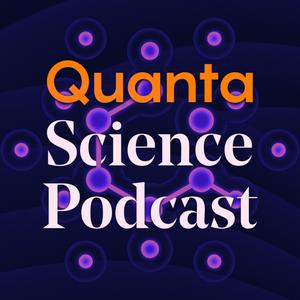 Quanta Science Podcast
Quanta Science Podcast
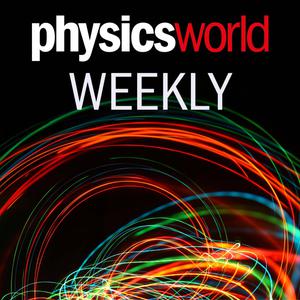 Physics World Weekly Podcast
Physics World Weekly Podcast
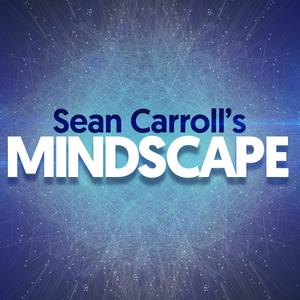 Sean Carroll's Mindscape: Science, Society, Philosophy, Culture, Arts, and Ideas
Sean Carroll's Mindscape: Science, Society, Philosophy, Culture, Arts, and Ideas
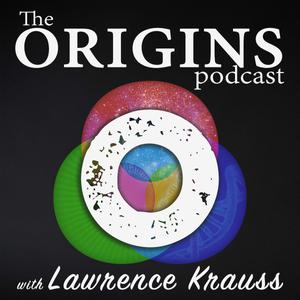 The Origins Podcast with Lawrence Krauss
The Origins Podcast with Lawrence Krauss
 COMPLEXITY
COMPLEXITY
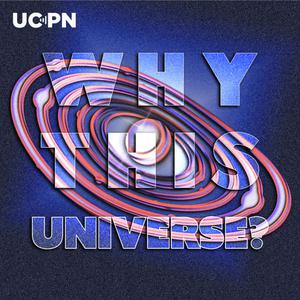 Why This Universe?
Why This Universe?